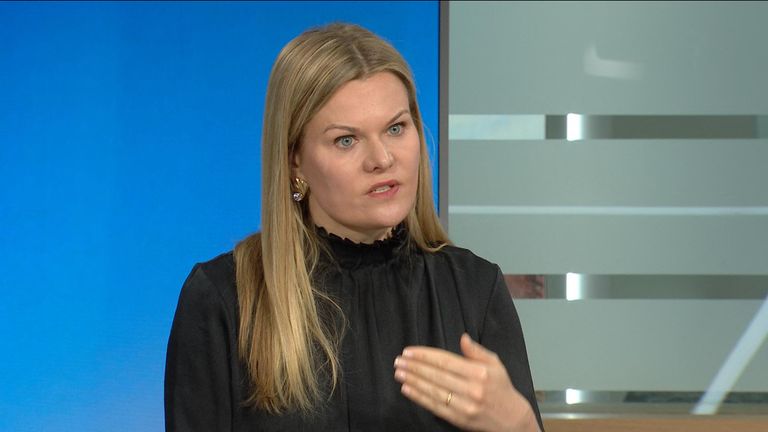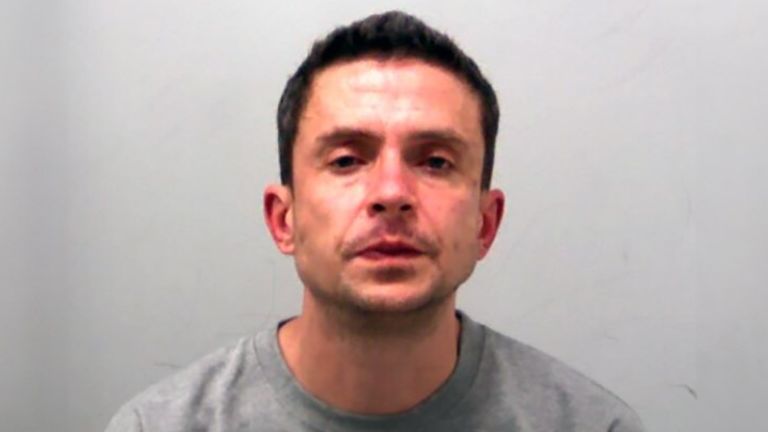Creating fake sexual images of another person will become a criminal offence, under a new law announced on Tuesday.
Those convicted could face prosecution and fines, and if the image is shared widely, offenders could be sent to jail.
Even if someone creates a sexually explicit fake image, called a ‘deepfake’, without intending to share it, they will be committing an offence if they want to cause “alarm, humiliation or distress to the victim”, according to the Ministry of Justice.
Cally Jane Beech, a campaigner and former Love Island contestant, said: “This new offence is a huge step in further strengthening of the laws around deepfakes to better protect women.”
The Love Island star found images of herself online that had been “distorted” and a fake nude body superimposed on top.
“The likeness of this image was so realistic that anyone with fresh eyes would assume this AI generated image was real when it wasn’t, nevertheless I still felt extremely violated,” she told Glamour magazine.
“Too many women continue to have their privacy, dignity and identity compromised by malicious individuals in this way and it has to stop,” she said on Tuesday in response to the new law.
Deepfakes are usually created using ‘generative artificial intelligence’ tools. These programs use artificial intelligence to create images based on a prompt given by the user.
Read more from Sky News:
Schools won’t use Meta Quest VR unless teachers have ‘complete control’
Tesla to cut around 15,000 jobs under Musk drive for ‘productivity’
Meta criticised after lowering WhatsApp minimum age from 16 to 13
Most of the tools have built-in rules to stop the creation of explicit images, but in March the government’s new AI Safety Institute found that ”using basic prompting techniques, users were able to successfully break safeguards immediately”.
The scenarios they tested ranged from producing discriminatory images to gaining personal information on individuals.
Taylor Swift became a high-profile victim of deepfake pornography when the internet was flooded with fake sexual images of the singer in January, but the problem is widespread.
A Channel 4 investigation in March found that hundreds of British celebrities had been victims of deepfake pornography, including the report’s presenter Cathy Newman.
“I didn’t think I’d be too affected by it but actually when I watched it, the only way to describe it is that it was violating,” she told Radio 4’s Today programme on Tuesday.
“It was kind of me and not me, and yet it was incredibly invasive. It was a disgusting fantasy that someone had had.”
In 2019, 96% of online deepfake video content was of nonconsensual pornography, according to a report by cybersecurity company Deeptrace.
“This new offence sends a crystal clear message that making this material is immoral, often misogynistic and a crime,” said Laura Farris, the minister for victims and safeguarding.
The government has made it a priority to better protect women, according to the Ministry of Justice.
A new raft of criminal offences are being discussed in Parliament to punish people who take or record intimate images without convent, or install equipment to enable someone to do so.
Earlier this year, ‘cyberflashing’ became a criminal offence and Nicholas Hawkes became the first person to be convicted in February, after he sent unsolicited photos of his erect penis to a 15-year-old girl and a woman.
Hawkes was sentenced to 66 weeks in jail and will be on the sex offenders register until November 2033 as he’d been convicted of previous sexual offences.



